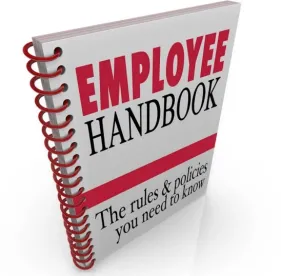Many employers still grapple with the application of certain anti-discrimination laws — such as Title VII and the ADA — to non-U.S. citizen employees working in the United States and U.S. citizen employees working overseas. To determine whether these laws apply, employers should ask themselves the following questions:
-
Do I employ enough people? Title VII and the ADA apply if you are an entity or individual engaged in an industry affecting commerce that has fifteen (15) or more employees for each working day in each of twenty (20) or more calendar weeks in the current or preceding year. If you do not employ more than 15/20 individuals, you can stop right here. However, other state anti-discrimination laws with lower thresholds may still apply.
-
Am I a U.S. employer? If the answer to Question No. 1 is yes, then ask yourself if you have your place of incorporation in the United States. A company incorporated in the United States is deemed an American employer since they reap the benefits of U.S. laws and should, therefore, ensure compliance with them, including Title VII and the ADA. If you are not incorporated in the United States, then the analysis is not over. Courts will consider your principal place of business (i.e. location of primary factories, offices, facilities, etc.), the nationality of dominant shareholders and/or those with voting control, and the nationality and location of management (i.e. officers and directors). If the above factors indicate the employer’s significant connection to the United States, a company incorporated outside of the United States may still be deemed a U.S. employer that must comply with Title VII and the ADA.
-
Am I a U.S.-controlled employer? If the answer to Question No. 2 is no, you are still not out of the woods. If you are a foreign subsidiary that is sufficiently controlled by a U.S. employer or entity, you may be required to comply with U.S. anti-discrimination laws like Title VII and the ADA. In this scenario, there is a sufficient interrelation of operations (i.e. shared departments or common policies), common management (i.e. officers and directors), centralized control of labor relations (i.e. shared personnel department or personnel policies), and common ownership or financial control (i.e. overlapping shareholders).
-
Am I foreign employer within the U.S.? You may not be American or American-controlled, but if you are a foreign employer who employs people within the U.S., Title VII and the ADA may still apply. There are two limited exceptions: first, you are a foreign government (although there are limitations to this exception) or you are subject to a foreign treaty or international agreement between the U.S. and your home country.
-
Is the employee at issue protected by these statutes? We’re still not done. Even though you may be covered by these laws, your employee may not be. Title VII and the ADA protect any U.S. citizen employed outside of the United States, absent any conflict with foreign law (not a foreign practice, policy, custom or preference) or employed in the U.S. by a foreign employer. They also cover any non-U.S. citizen employee working in the U.S. whether employed by an American or foreign employer. These laws do not, however, protect your non-U.S. citizen employees working abroad.
A similar analysis is required to determine the extraterritorial scope of other U.S. anti-discrimination laws, and employers should take the time to ensure compliance with each one when employing foreign citizens in the United States or U.S. citizens abroad.




 />i
/>i

